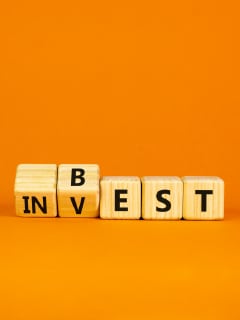CKYC Registry
-
Customer Service Contact us Service request Locate a branch
Find all the help you need
Scan the QR, get our app, and find help on your fingertips

Help CenterSupport topics, Contact us, FAQs and more
-
Login
Are you ready for an upgrade?
Login to the new experience with best features and services
-
Login
Are you ready for an upgrade?
Login to the new experience with best features and services
- Accounts
-
Deposits
IDFC FIRST Bank Deposits
View all Deposits -
Loans
IDFC FIRST Bank Loans
View all Loans - Wealth & Insure
-
Payments
IDFC FIRST Bank Payments
View all Payments -
Cards
IDFC FIRST Bank Cards
View all Cards - Blogs
- Corporate Account
-
Cash Management Services
IDFC FIRST Bank Cash Management Services
View all Cash Management Services - Supply Chain Finance
-
Corporate Lending
IDFC FIRST Bank Lending
View all -
Treasury
IDFC FIRST Bank Treasury
See more details - NBFC Financing
Support topics, Contact us, FAQs and more
- IDFC FIRST Bank Accounts
-
Savings Account
-
Corporate Salary
Account -
Senior Citizens
Savings Account -
First Power
Account -
Current Account
-
NRI Savings
Account -
TASC Institutional
Account -
Savings Account
Interest Calculator
- IDFC FIRST Bank Deposits
-
Fixed Deposit
-
Recurring Deposit
-
NRI Fixed Deposit
-
Safe Deposit Locker
-
FD Calculator
-
RD Calculator
- IDFC FIRST Bank Loans
-
Personal Loan
-
Consumer Durable
Loan -
Home Loan
-
Business Loan
-
Professional Loan
-
Education Loan
-
New Car Loan
-
Pre-owned Car Loan
-
Two Wheeler Loan
-
Pre-owned Two
Wheeler Loan -
Commercial Vehicle
Loan -
Gold Loan
-
Loan Against Property
-
Loan Against Securities
-
Easy Buy EMI card
-
Personal Loan
EMI Calculator -
Education Loan
EMI Calculator -
Home Loan
EMI Calculator -
EMI Calculator
-
Personal Loan Eligibility Calculator
- IDFC FIRST Bank Wealth & Insure
-
FIRST Select
-
FIRST Wealth
-
FIRST Private
-
Mutual Funds
-
Sovereign Gold Bond
-
Demat Account
-
Term Insurance
-
Life Insurance
-
Health Insurance
-
General Insurance
-
Bonds
-
Loan Against
Securities -
Portfolio Management
Service
- IDFC FIRST Bank Payments
-
FASTag
-
Credit Card
Bill Payments -
UPI
-
Funds Transfer
-
Forex Services
-
Pay Loan EMI
- IDFC FIRST Bank Cards
-
Ashva :
Metal Credit Card -
Mayura :
Metal Credit Card -
FIRST Millennia
Credit Card -
FIRST Classic
Credit Card -
FIRST Select
Credit Card -
FIRST Wealth
Credit Card -
FIRST WOW!
Credit Card -
Deals
-
Debit Cards
-
Co-branded Cards
-
Credit Card
EMI Calculator -
FIRST Corporate
Credit Card -
FIRST Purchase
Credit Card -
FIRST Business
Credit Card
- Premium Metal Credit Cards
-
AshvaLifestyle1% Forex₹2,999
-
MayuraLifestyleZero Forex₹5,999
-
FIRST PrivateInvite Only
- Best for travellers
-
MayuraZero ForexMetal₹5,999
-
Ashva1% ForexMetal₹2,999
-
FIRST WOW!Zero ForexTravelLifetime Free
-
FIRST SWYPTravel OffersEMI₹499
-
FIRST Select1.99% ForexLifestyleLifetime Free
-
FIRST Wealth1.5% ForexLifestyleLifetime Free
-
Club VistaraTravelLifestyle₹4,999
-
IndiGo IDFC FIRST Dual Credit CardTravelLifestyle₹4,999
- Max benefits, Free for life
-
FIRST Classic10X RewardsShoppingNever Expiring Rewards
-
FIRST Millennia10X RewardsShoppingNever Expiring Rewards
-
FIRST Select10X RewardsLifestyle1.99% Forex
-
FIRST Wealth10X RewardsLifestyle1.5% Forex
-
FIRST WOW!RewardsTravelZero Forex
-
LIC ClassicRewardsInsuranceShopping
-
LIC SelectRewardsInsuranceShopping
- Reward Multipliers
-
AshvaLifestyleMetal₹2,999
-
MayuraLifestyleZero Forex₹5,999
-
FIRST ClassicNever Expiring RewardsShoppingLifetime Free
-
FIRST MillenniaNever Expiring RewardsShoppingLifetime Free
-
FIRST SelectNever Expiring RewardsLifestyleLifetime Free
-
FIRST WealthNever Expiring RewardsLifestyleLifetime Free
- Rewards & Credit on UPI
-
FIRST Power+FuelUPI₹499
-
FIRST PowerFuelUPI₹199
-
FIRST EA₹NVirtual1% Cashback₹499
-
FIRST DigitalVirtualUPI₹199
-
IndiGo IDFC FIRST Dual Credit CardUPITravelDual cards
- Fuel and Savings
-
FIRST PowerRewardsUPI₹199
-
FIRST Power+RewardsUPI₹499
-
LIC ClassicRewardsInsuranceShopping
-
LIC SelectRewardsInsuranceShopping
- Express and Flaunt
-
AshvaMetal1% Forex₹2,999
-
MayuraMetalZero Forex₹5,999
-
FIRST SWYPEMIOfferMAX₹499
-
FIRST MillenniaRewardsShoppingLifetime Free
- FD Backed rewarding Credit Cards for all
-
FIRST EA₹NVirtualCashback₹499
-
FIRST WOW!Zero ForexTravelLifetime Free
-
CreditPro Balance TransferTransfer & SaveReduce InterestPay Smartly
- IDFC FIRST Bank NRI Forex Solutions
-
Send money to India-Wire transfer
-
Send money to India-Digitally
-
Send money abroad
-
Max Returns FD (INR)
- IDFC FIRST Bank MSME Accounts
-
Platinum Current
Account -
Gold
Current Account -
Silver Plus
Current Account -
Merchant Multiplier
Account -
Agri Multiplier
Account -
TASC Institutional
Account -
Dynamic Current
Account -
World business
Account -
First Startup
Current Account
- IDFC FIRST Bank Business Loans
-
Business Loan
-
Professional Loan
-
Loan Against Property
-
Business Loan for Women
-
Working Capital Loan
-
Construction Equipment Loan
-
Machinery Loan
-
Healthcare Equipment Loan
- IDFC FIRST Bank Business Solutions
-
Payment Solutions
-
Tax Payments
-
Doorstep Banking
-
Point of Sale (POS)
-
Escrow Accounts
-
NACH
-
Payment Gateway
-
UPI
-
Virtual Accounts
-
As per amendment in the Income Tax Rules, PAN or Aadhaar are to be mandatorily quoted for cash deposit or withdrawal aggregating to Rupees twenty lakhs or more in a FY. Please update your PAN or Aadhaar. Kindly reach out to the Bank’s contact center on 1800 10 888 or visit the nearest IDFC FIRST Bank branch for further queries.
-
-
Most Searched
Sorry!
We couldn’t find ‘’ in our website
Here is what you can do :
- Try checking the spelling and search
- Search from below suggestions instead
- Widen your search & try a more generic keyword
Suggested
Get a Credit Card
Enjoy Zero Charges on All Commonly Used Savings Account Services
Open Account Now
Savings Account
The importance of managing personal finance in empowering women in India
Summary: From closing the gender pay gap that still exists at some workplaces to overcoming financial challenges, understanding the importance of personal finance is vital for women to ensure confidence, better decision-making, and control over their lives.
Have you ever felt unsure about what to do with your money? Trust us, you are not alone. Understanding your finances is crucial to your overall well-being and success. And if you are a woman, the importance of managing personal finance is higher because of the age-old systemic barriers still prevalent at some places. Such barriers pose a significant threat to progress, compromising your financial security. Therefore, financial literacy is the stepping-stone for women who want to be financially secure and independent.
Let us dive into the importance of managing personal finance for women and why it matters, irrespective of whether you are a stay-at-home mom or a boss lady crushing it in the boardroom.
Importance of personal finance and financial literacy for women
Financial literacy is an essential life skill for all genders. However, women have traditionally been at a disadvantage due to the lack of avenues available to them to learn about financial planning. In India, women are not always encouraged to work and be financially independent. In many cases, the men in the family, such as the father, brother, or husband, take control of the woman’s finances and, in extreme cases, even lay down the ground rules on how to spend or save the money.
However, today, women need to take control of their earnings by understanding and managing their personal finance in a prudent manner.
IDFC FIRST Power Savings Account, specially curated to cater to the needs and aspirations of women in India, helps take the right step towards their overall financial well-being.
Also read: https://www.idfcfirstbank.com/finfirst-blogs/finance/how-women-can-start-their-investment-journey
READ MORE
The following are a few vital reasons why financial literacy is crucial for women:
Closing the still-existent gender pay gap
Financial literacy plays a crucial role in closing the gender pay gap that still exists in some industries and workplaces. It can empower women in several ways and equip them with the knowledge and skills to negotiate higher salaries and additional benefits like insurance, cab facilities, bonuses, company shares, and more. Financial literacy offers the confidence to communicate one’s worth effectively.
When women are paid equally, and it becomes a universal practice across industries and workplaces, their high earning potential, generally, becomes better throughout their careers. It adds to higher lifetime earnings, better retirement savings, and enhanced opportunities for financial growth. Fair pay also opens doors for women in fields that men may have traditionally dominated, such as finance, construction, aviation technology, etc. Further, it ensures proper access to essentials like food, housing, and healthcare. It also offers women greater economic and political power, improved representation at work and home, and more influence in social and political decision-making.
By understanding the importance of personal finance and taking control, women can make informed financial decisions, leading to greater financial independence, security, and dignity for the rest of their lives.
Achieving financial independence in every situation
A woman may go through life-changing events and changes, such as marriage, motherhood, divorce, career sabbatical and transition, retirement, etc., affecting her financially. Proper financial knowledge can ensure that she always has a safety net to fall back on. For instance, women planning to get married or start families must understand the financial implications of these decisions and plan for wedding expenses, childcare costs, etc. They must also know their financial and legal rights as a daughter, wife, mother, and daughter-in-law.
Further, it is essential for divorced women, especially mothers, to understand their financial situation in a divorce. Unfortunate but unavoidable instances of divorce, too, can have a significantly negative impact on their finances, particularly when they are not the primary breadwinners in the family. Post-divorce, women must be involved with their finances and find a source of income, evaluate their expenses and assets, and develop a plan to manage their financial assets alone.
Women transitioning to new careers or re-entering the workforce after a break must also understand their earning potential and develop a plan to negotiate salaries, minimise dependence on debt, and plan for their future, such as retirement.
Women need to know the importance of personal finance in old age as well, evaluate their retirement options, including pensions and other savings and investment plans, and prepare accordingly.
Importance of personal finance in building wealth for women
Recognising the importance of personal finance can help women chart out a suitable investing and saving plan for their long-term financial goals and needs. It can be instrumental in building wealth and achieving lifelong financial stability.
It is essential to understand that a woman’s wealth determines her well-being and security to a great extent. With adequate wealth, a woman can buy a house to keep her safe, access healthcare to stay healthy, protect her loved ones like ageing parents and children, offer herself and her family a dignified and comfortable life, and much more.
Wealth also enables women to be financially independent and not rely on others for financial support or decision-making. Further, it can provide a safety net during unexpected events like job loss, illness, or divorce. Women with adequate wealth can better weather these events and maintain financial stability.
Women can consider investing in different financial tools that offer compound benefits to build wealth steadily. For example, instruments like mutual funds offer the power of compounding and reinvesting profits into the market to generate higher returns over time.
Also read: https://www.idfcfirstbank.com/finfirst-blogs/finance/debunking-5-wealth-management-myths
Breaking the cycle of poverty
Financial literacy helps create a culture and habit of saving and investing among women. It constantly reminds women about the importance of personal finance management, encouraging them to save and invest for their future rather than relying solely on income from their jobs, thus ensuring financial stability.
For instance, women can use a high-interest Savings Account to park their emergency fund, which can be useful when they do not have a salary to depend on. Investments like mutual funds, stocks, bonds, fixed deposits, etc., can also be useful to bridge the recurring gap between a woman’s income and financial needs, ensuring she is always adequately protected financially.
Financial literacy can empower women to make informed decisions about budgeting, saving, investing, and managing debt effectively. Understanding the importance of personal finance and financial independence can also inspire women to start businesses and generate additional income.
Women entrepreneurs can further create jobs for others, including women, and stimulate economic growth in their communities, thereby helping break the cycle of poverty.
Encouraging equality and breaking the gender stereotypes
Women and finance are still sparingly used together because the stereotypes suggest men are better at finances. However, financial literacy in women can play an essential role in promoting equality and breaking these gender labels.
Self-sufficient women and those who realise the importance of finance may feel more confident in managing their money and making important financial decisions without needing help.
When women are financially literate, they are also more likely to make decisions that lead to improved financial outcomes, such as better salaries, higher job satisfaction, adequate investments for the future, etc. These can together help establish gender equality in a family and shrink the gender wealth gap between men and women.
To sum it up
The importance of personal finance cannot be undermined in today’s day and age. A woman’s financial wellbeing determines many things, such as her health, dignity, safety, and above all, her role in important political, social, and economic decisions in her family and community.
While financial independence and building wealth can be intimidating, identifying the right financial tools can help get you started. The IDFC FIRST Power Savings Account can be the perfect companion for women who wish to embark on the journey to financial freedom and self-sufficiency. This high-interest savings account can help women save for goals and unexpected financial emergencies.
In addition to the FIRST Power Savings Account, IDFC FIRST Bank also offers several tools and a comprehensive savings and investment platform for women to understand the importance of finance and take control of their money and lives in a simplified manner.
Disclaimer
The contents of this article/infographic/picture/video are meant solely for information purposes. The contents are generic in nature and for informational purposes only. It is not a substitute for specific advice in your own circumstances. The information is subject to updation, completion, revision, verification and amendment and the same may change materially. The information is not intended for distribution or use by any person in any jurisdiction where such distribution or use would be contrary to law or regulation or would subject IDFC FIRST Bank or its affiliates to any licensing or registration requirements. IDFC FIRST Bank shall not be responsible for any direct/indirect loss or liability incurred by the reader for taking any financial decisions based on the contents and information mentioned. Please consult your financial advisor before making any financial decision.
The features, benefits and offers mentioned in the article are applicable as on the day of publication of this blog and is subject to change without notice. The contents herein are also subject to other product specific terms and conditions and any third party terms and conditions, as applicable. Please refer our website www.idfcfirstbank.com for latest updates.























